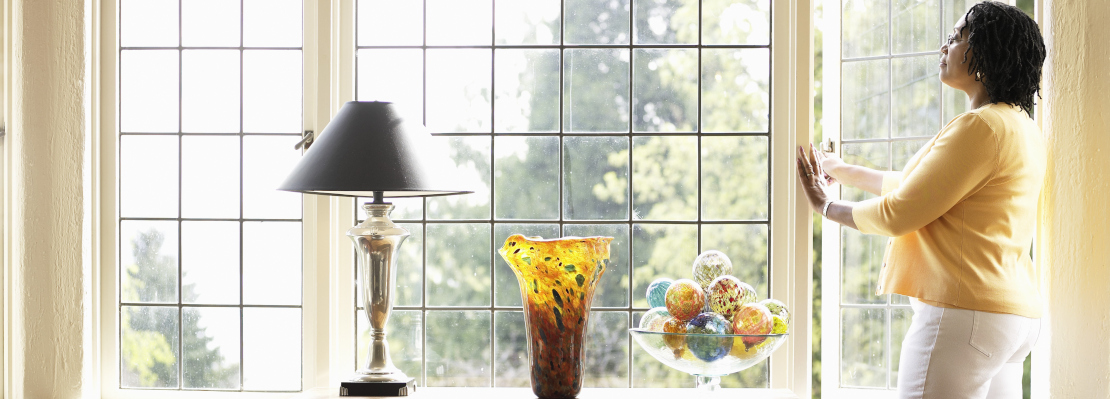It’s spring and the weather is beginning to get milder; in some parts of the country that means blooming plants, while elsewhere in the U.S., it just may mean only a little less snow.
But warmer weather is coming, and given some record-setting temperatures in the U.S. over the past few summers, it might be a very hot season. Hot weather often means more air conditioning, more ice from the refrigerator, more electric fans, and more energy to keep those devices running. That extra energy creates higher utility bills and costs more money. But before the summer weather arrives, there are some home maintenance tasks that can be done that could assist in lowering both indoor temperatures and the expense of staying cool.
Undertaking some of the basic home activities listed below can save money all through the spring, summer, and into the fall this year.
What can I do to my home to lower costs in the spring and summer months?
Here are 10 suggestions that might just be helpful this spring:
- Have the central heating system and air conditioner serviced—have it checked, cleaned, and its filters replaced. A clean, well-performing heating and cooling system is more energy efficient and doesn’t have to struggle to push air through a home. Regularly changed filters keep the air free of dust and pollen and may help manage the need to treat allergies.
- For dry, temperate days, turn off the heating and air conditioning system and open the windows for fresh air and to lower energy costs.
- Check for water leaks for outside and inside faucets. Outdoor faucets may be used more for watering during the summer, and you shouldn’t be paying a larger water bill due to leakage.
- Check if more roof insulation should be added. Insulation keeps your home warmer in the winter and cooler in the summer, and having enough insulation can greatly improve heating and cooling costs. Fluctuating temperatures in different rooms, cold interior ceilings, walls and floors, and cold drafts in rooms are just some symptoms of a need for more insulation and maybe tighter seals around windows and doors. Insulation blankets that can be unrolled and layered or blown-in insulation are available at home improvement stores.
- Check the seals around doors and windows. Air leakage is a major culprit contributing to cooling (or heating) loss in a home. Condensation on windows may indicate air coming around them or between panes, and drafts around doors are another indicator that the door is not sealed tightly enough. Caulk and various types of rubber and foam weather stripping tape or seals can be purchased at home improvement and hardware stores to block against air coming into, or out of, a home.
- Is there light-colored paint on the sides of the house where it faces the sun? Pressure wash the external walls so they’re cleaner and brighter; lighter colors are better at reflecting solar rays and keeping the house cooler.
- If your home has a smart thermostat, reprogram it based on longer days and warmer weather to be more efficient. If you’re away on vacation, you can set the thermostat so the house is a little warmer than you like to save money on air conditioning.
- Replace internal and external fluorescent light bulbs with LED bulbs that use less electricity—and that may also be brighter.
- Are the window blinds a rather dark color? Darker colors absorb more heat and keep rooms warmer. Replacing darker blinds with lighter-color blinds will help keep a home cooler in the summer.
- Clean the chimney and make certain the flue damper is always closed tight when the chimney doesn’t have a fire. Cleaning the chimney reduces built-up smoke residue that has accumulated on the inside of the chimney flue, and it’s a potential fire hazard. Keeping the flue damper (a metal plate the closes the opening of the flue) closed tight when the chimney isn’t being used prevents warm or cold air from escaping up the flue and increasing heating or cooling costs.
- Bonus suggestion! Air drying some clothes on outside clotheslines conserves electricity used for clothes dryers, which saves more money than even energy-efficient models, and clothes dryers also contribute to generating more heat in the home.
Interested in more suggestions on saving money in the warmer months?
The Delta Community Credit Union blog has some other ideas on saving summer money:
For more helpful financial information, remember to check out the free Delta Community Financial Education Center webinars on a range of money-related topics. You can visit the Financial Education Center's Events & Seminars page to register for its no-cost, on-demand webinars.



